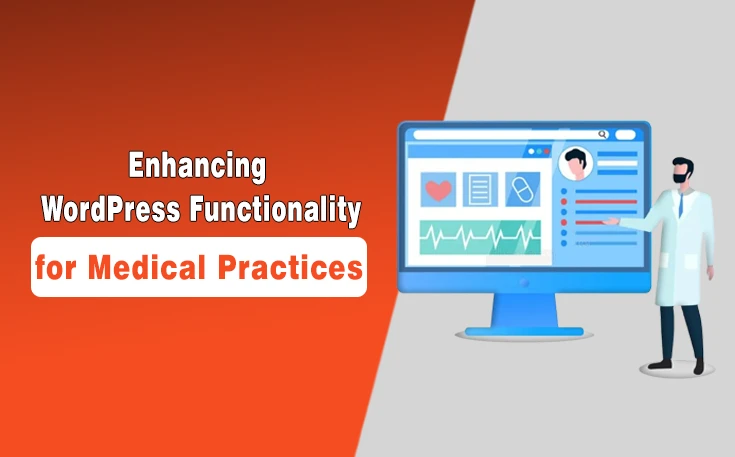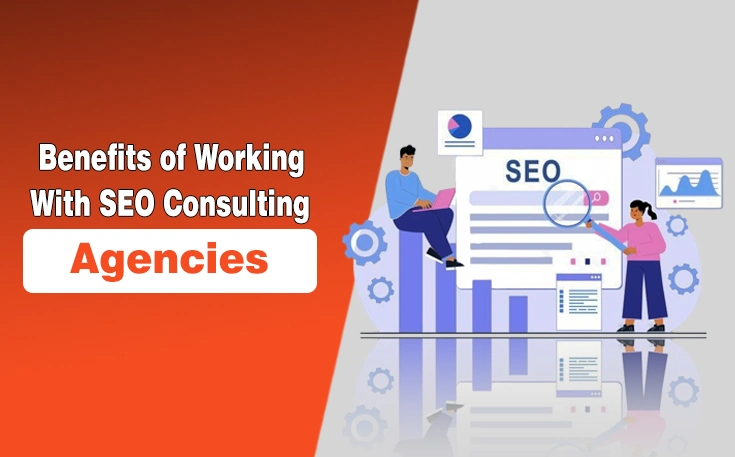Running medical practices with streamlined workflows and optimal patient workflow is not a walk in the park. In modern times, with digitization at its peak and patients demanding convenient and accessible care services, it gets even harder to strive.
Establishing a strong online presence and featuring automated clinical services is a must for care practitioners these days to boost patient retention. Step into WordPress, where functionality comes to your doorstep to enhance the patient experience.
With WordPress, having a user-friendly, robust, and mobile-accessible website is a no-brainer. Its extensive ecosystem of extensions adds to its charm, helping care centers accomplish their objectives.
Here, I will explore wordPress functionality for medical practices and how these practices can fully utilize WordPress, incorporating tools, plugins, and best practices to enhance functionality, improve online presence, and elevate patient experience.
Why WordPress Is Needed For Medical Practices
WordPress is more than just a content management system. WordPress is used by 43.4% of all websites and there are over 810 million WordPress websites around the globe.
It not only designs websites but enhances the productivity of healthcare systems by increasing patient retention and allowing for scalability.

Here’s how WordPress aids care professionals in attaining their objectives.
- WordPress provides an intuitive dashboard, enabling healthcare administrators to manage and update content with ease.
- As a medical practice grows, WordPress scales effortlessly, accommodating everything from solo practices to larger clinics.
- WordPress offers a range of plugins and themes, many of which are free, providing a high-value platform without hefty investments.
- With WordPress, practices can customize their website to align with branding, patient needs, and clinical goals, ensuring a unique online experience.
Leveraging WordPress Functionality for Medical Practices
As stated above, WordPress is more than a content management system. It is a gem encompassing an array of functionalities to aid medical practices in delivering exceptional care. All thanks to its pool of handy plug-ins.
Custom Patient Portals: Improving Accessibility and Engagement
Patient portals are invaluable for medical practices. Even though healthcare platforms like Kareo software offer dedicated portals where patients can access records, communicate with healthcare providers, and manage appointments, WordPress adds to it by featuring custom portals. The custom portals improve accessibility and patient engagement.
Here’s how it works:
- Integrating Portal Plugins: WordPress features quality plugins that allow practices to create secure patient portals. For example, MemberPress provides patients with a convenient, private place to access their health information. It emphasizes the importance of compliance, ensuring all patient data is secure and accessible only to authorized users.
Telemedicine Integration in WordPress: A Modern Healthcare Solution
Telemedicine has transformed healthcare delivery, and practices need a WordPress setup that supports remote consultations. It improves patient access to timely care from the convenience of their homes. Knowing the role of telemedicine in reaching underserved populations and creating a seamless patient experience, WordPress features plugins supporting remote visits.
- Telemedicine Through Plugins: Medical practices can leverage extensive plugins like Telemedicine Video by WordPress to provide remote consultations through secure video calls. This plugin ensures high-quality consultations with minimal disruptions.
Appointment Management Systems for Improved Practice Efficiency
Effective appointment management is crucial for enhancing patient satisfaction. EMRs like the best EMR for urgent care offer features like automated scheduling and reminders to reduce no-shows. WordPress also presents reliable plugins that streamline the appointment management process. It reduces waiting time, etc., to enhance practice efficiency and improve patient satisfaction.
- Exploring Scheduling Plugins: Healthcare practices can incorporate scheduling plugins like Simply Schedule Appointments and Amelia to streamline patient flow. These plugins simplify appointment scheduling and automate reminders, reducing last-minute cancellations and enhancing practice revenue.
Local SEO for Medical Practices on WordPress: Attracting Nearby Patients
Local SEO is essential for medical practices wanting to connect with patients in their area. For this purpose, you should do:
- Optimizing for Local Keywords: Highlight using keywords like “best EMR for solo practice” or “nearby urgent care” and setting up location-based content to boost search visibility.
- Google My Business Integration: Show how integrating Google Maps and local citations on the WordPress site can improve local search rankings and help patients easily find the practice.
Patient Education and Content Marketing: Establishing Trust and Authority
Educational content on health topics is a powerful way to engage patients and establish the practice as a trusted resource. Ideas for content include:
- Creating an Informative Blog: Share best practices for developing a blog on WordPress, covering topics that resonate with patients, like preventive care and FAQs.
- Utilizing Visual Content: Discuss how to incorporate videos, infographics, and downloadable guides for patients, which can improve SEO and patient engagement.
Implementing Analytics for Patient Interaction Insights
Understanding how patients use the website can help practices improve the patient journey. Possible angles are:
- Setting Up Google Analytics: This guide will provide insights on installing Google Analytics in WordPress to track patient behaviors, identify popular content, and adjust website elements accordingly.
- Using Patient Feedback: Implement feedback forms with plugins like WPForms to capture patient opinions, identify areas for improvement, and increase patient satisfaction.
Accessibility Compliance: ADA-Friendly Web Design for Healthcare
Accessibility is essential to ensure every patient, including those with disabilities, can access care information online. Ideas could cover:
- Designing an ADA-Compliant Website: Walk through accessibility best practices, like using screen-reader-friendly fonts and alt-text for images, to ensure compliance and patient access.
- Evaluating Accessibility Plugins: Recommend plugins such as WP Accessibility to help practices improve website functionality for all patients, including those with disabilities.
Advanced-Data Protection for Medical WordPress Sites
With patient data being highly sensitive, security must be prioritized on healthcare websites. You should use:
- HIPAA-Compliant Security Plugins: Share insights into plugins that protect patient data, such as HIPAA Forms and SSL Insecure Content Fixer.
- Two-Factor Authentication: Discuss the importance of two-factor authentication and secure login methods to safeguard both patient and practice data.
Integrating WordPress Plugins To EHR Systems
For practices using Kareo, Epic, or other software for patient records, billing, appointment scheduling, etc,. WordPress can be customized to integrate with these systems, creating a more unified workflow. Its unprecedented plug-ins enhance the functionality of tools like Kareo software, streamlining clinical operations and improving patient experience.
- WPForms for HIPAA-Compliant Patient Forms: This plugin allows practices to create secure patient forms, which are ideal for collecting appointment details, medical histories, and feedback while adhering to privacy regulations.
- WooCommerce for Payment Solutions: WooCommerce handles payments securely, facilitating co-pays, deposits, or even online sales of health-related products.
Leveraging WordPress for Optimal Patient Engagement and Operational Efficiency
wordPress functionality for medical practices with a flexible, powerful platform to meet the demands of modern healthcare delivery. By using the right plugins, focusing on security, and adopting SEO-friendly practices, healthcare providers can create an engaging, reliable online presence that supports patient retention, enhances operational efficiency, and contributes to the practice’s growth.
Through WordPress, the possibilities for improved patient interaction and streamlined workflows are virtually limitless, bridging the gap between technology and compassionate care. The cherry on top is WordPress, which supports seamless integration with EHR software like Epic and AdvancedMD, empowering medical practices with intuitive tools and services.





